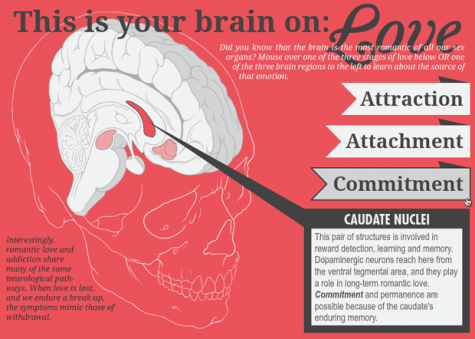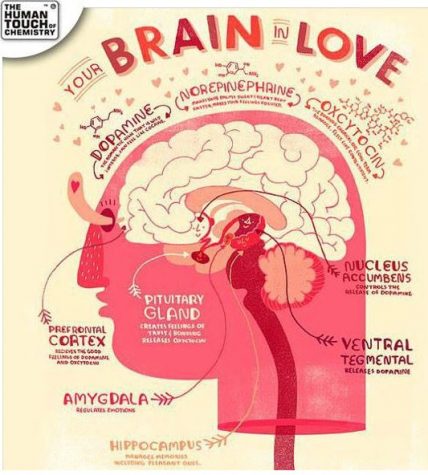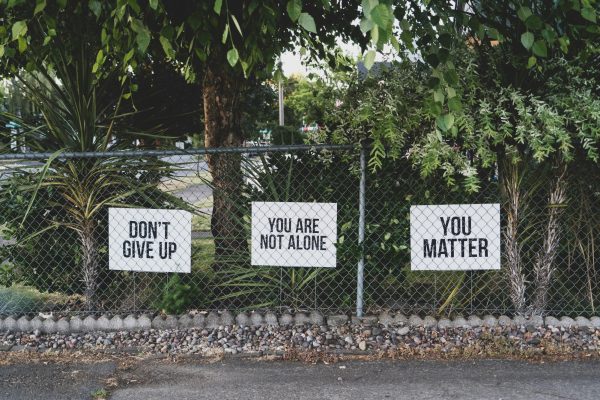What Is Love?
A scientific breakdown of love
It’s February and everyone has felt the feeling of love on this past Valentine’s Day, so it’s time we break down the science of love.
 What is love?
What is love?
According to Wikipedia, “Love is influenced by hormones (such as oxytocin), neurotrophins (such as NGF), and pheromones, and how people think and behave in love is influenced by their conceptions of love.
“To put simply, our brains neurochemically (affecting the nervous system) process everything we do psychologically. Scientists have tons of proof and evidence that “healthy love causes all sorts of healthful neurochemical and biological things to happen.”
When one falls in love, the body releases feel-good chemicals and a lot of them. These chemicals; dopamine, adrenaline, and norepinephrine, trigger specific physical reactions. These levels of substances increase when two people fall in love.
The euphoric feeling of falling in love, that’s dopamine working its way through your body.
The racing heart and sweaty palms can be blamed from the adrenaline and norepinephrine.
 “Love lowers serotonin levels, which is common in people with obsessive-compulsive disorders,” said Mary Lynn, DO, co-director of Loyola Sexual Wellness Clinic. “This may explain why we concentrate on little other than our partner during the early stages of a relationship,” said Mary Lynn.
“Love lowers serotonin levels, which is common in people with obsessive-compulsive disorders,” said Mary Lynn, DO, co-director of Loyola Sexual Wellness Clinic. “This may explain why we concentrate on little other than our partner during the early stages of a relationship,” said Mary Lynn.
Both conditions (to different extents) give that rise of feelings like anxiety or obtrusive thinking. But don’t worry, if you and your partner last to a solid 12 to 18 months, both serotonin (the molecules that cause us to be obsessive) and stress molecules are restored to normal levels. There are three phases of love that we experience whilst falling.
The first stage is lust, a hormone-drive phase where we experience desire. The second stage is the attraction phase when blood is flowing to the pleasure point of our brains. This is when we feel an overwhelming fixation with our partner. This begins to fade when you reach the third stage–the attachment phase. That’s when the body develops a tolerance to the pleasure stimulants. Endorphins and hormones vasopressin and oxytocin also are being released during this phase, creating an overall sense of well-being and security that is conducive to a lasting relationship.
But love can also cause a person to be blind. Hint, this is why everyone says, “Love is blind”. This phrase is a valid notion. But why?
Well, simply because we idealize our partners. It’s like idealizing a television star, even if that character has committed horrific acts we still love them. When we fall in love, we want to only see the things that we want to see. Which is why when your friend says your significant other isn’t all that perfect, you should probably listen to them. Outsiders have a more objective and rational perspective on your relationship than you and your partner do.

Maddie Hill is a sophomore at WCHS and a new journalist for The Jacket Journal. In her free time, she enjoys to write short stories and listen to music....





